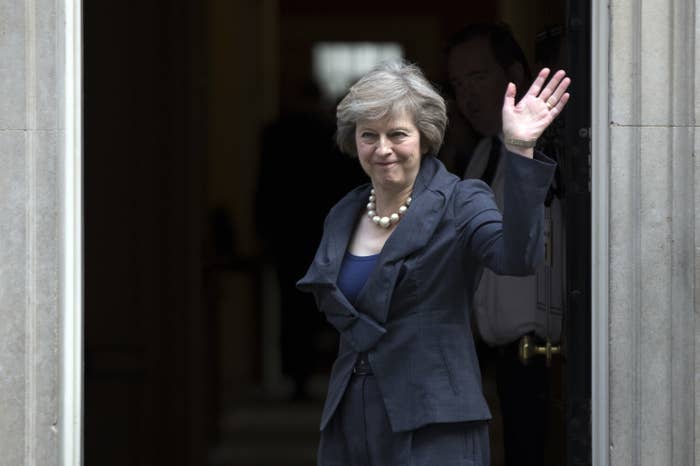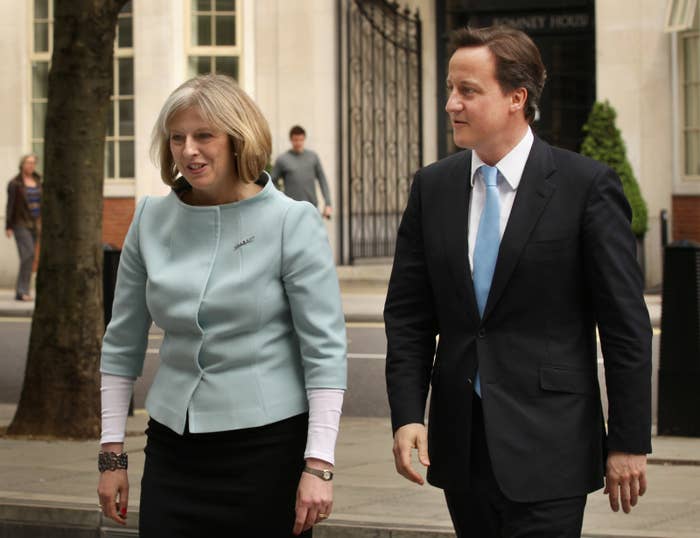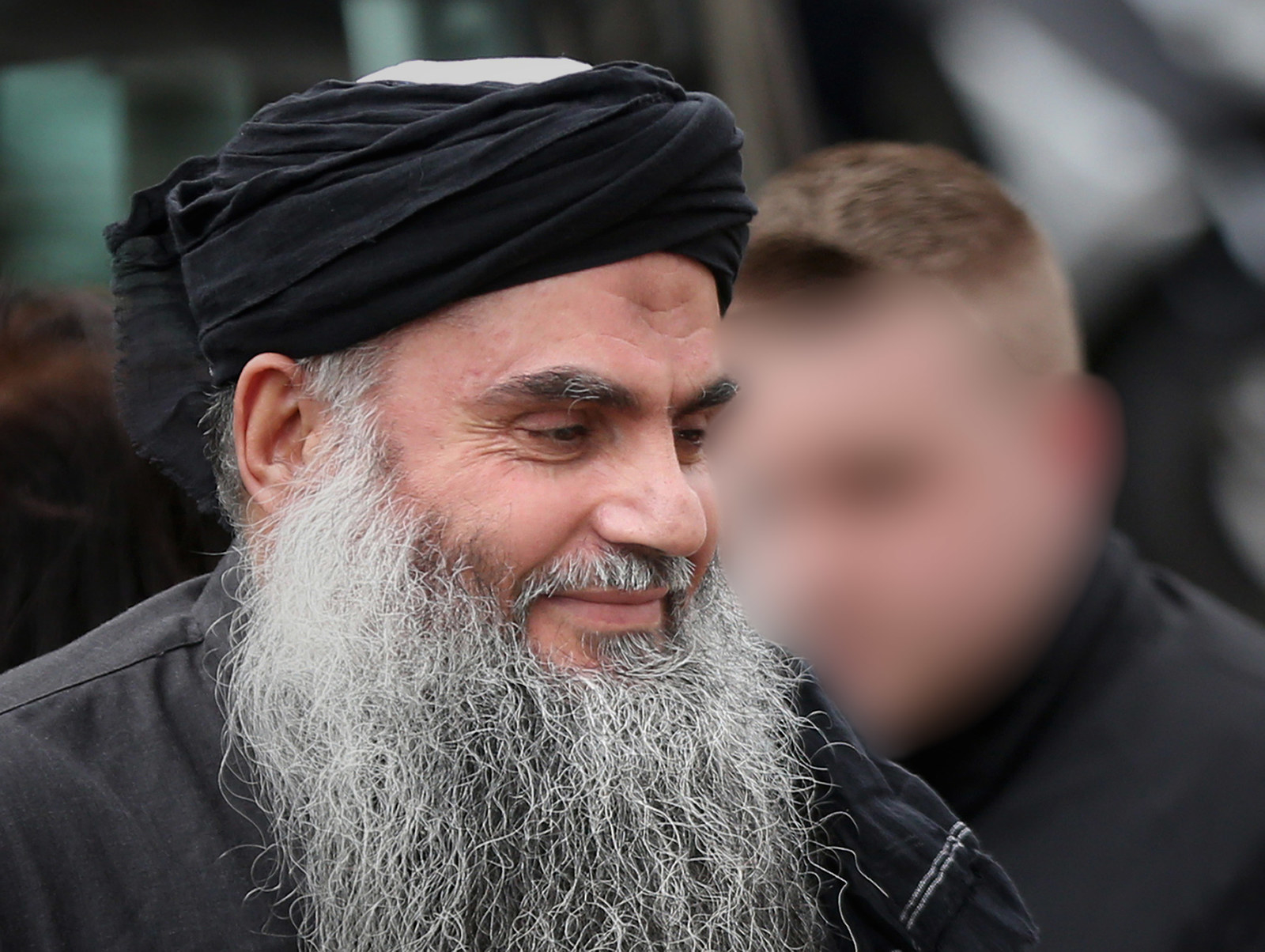
As the UK's home secretary since 2010, Theresa May has been responsible for pushing through the UK's surveillance laws, as well as enforcing rules on deporting failed asylum-seekers and being the tough face of government policies to tighten immigration.
With the UK set to pass new and sweeping surveillance laws by the end of the year that civil liberties groups are feverishly trying to amend, May's elevation to the top job in UK politics has left the groups nervous and less hopeful of concessions.
But some campaigners contacted by BuzzFeed News have pointed to a second Theresa May: the May who, in her early days as home secretary, repealed Labour's ID cards and control order policies.
"There is some promise," Dr Gus Hosein, executive director of Privacy International, told BuzzFeed News. "We look forward to seeing which May shows up to Number 10 Downing Street.
"We could see the authoritarian who uses any opportunity to decry human rights laws as the bane of our existence even as she builds systems that fail, or the liberally minded politician who when she was in opposition sought to repeal identity cards and wanted to see civil liberties at the centre of policymaking, and who
destroyed the previous government’s databases."
Theresa May the civil libertarian

One of Theresa May's first actions as home secretary was to announce that plans introduced by the previous Labour government to introduce ID cards were to be scrapped – and within just 100 days.
"This bill is a first step of many that this government is taking to reduce the control of the state over decent, law-abiding people, and to hand power back to them," she promised at the time.
"With swift parliamentary approval, we aim to consign identity cards and the intrusive ID card scheme to history within 100 days."
The pledge – which was fulfilled – marked a final victory for a years-long, cross-party campaign against ID cards and an accompanying database logging citizens' records. The Labour government had stuck with the unpopular policy for years, and its scrapping was seen as a defeat for the Home Office and MI5/MI6 officials who were pushing for it.
In 2011, May also scaled back control orders – which allow terror suspects to face curfews and other restrictions without charge or conviction – and reduced the period police can detain suspects without charge from 28 days to 14 days. Both moves were welcomed to a degree by civil liberties groups but criticised as half-measures, leading to suggestions she was being "captured" by the security establishment.
Theresa May the authoritarian
May's more recent efforts have been less well-received by campaign groups. As home secretary she has been the face of most government efforts to restrict immigration – and she has said as prime minister post-Brexit she will prioritise the ability to gain further control of UK borders over access to the European single market.
"I'm very clear that the Brexit vote gave us a very clear message from
people, that we couldn't allow freedom of movement to continue as it had
done hitherto," May said. EU leaders have repeatedly stated no single market access will be given without freedom of movement.
May was also criticised for the controversial use of Home Office vans telling illegal immigrants to "go home", which were accused of fuelling racist tensions.

May has also faced criticism for her campaign to deport the controversial Islamic cleric Abu Qatada to Jordan. Human rights groups warned Qatada could face torture, and said his chances of a fair trial could be harmed due to evidence from torture being admitted in Jordanian court.
Attempts to extradite Qatada were hampered by the European Court of Human Rights, one of the factors leading May to suggest the UK should withdraw from the European Convention on Human Rights (ECHR), which the court enforces. She has now backed off from the proposal, saying there isn't sufficient parliamentary support for it.
Qatada was eventually acquitted in Jordan, but May ruled out his being allowed to return to the UK.

But it's May's stance on surveillance law that's likely to prove the first test of whether her premiership will differ from her time as home secretary. May was responsible for introducing the investigatory powers bill to parliament – a new piece of legislation governing all surveillance activities by police and intelligence agencies.
The bill, introduced in the wake of the Edward Snowden surveillance leaks, followed three UK reviews that recommended updated, clearer laws and greater privacy protections against bulk surveillance. The bill as proposed contains some new protections but is generally seen as a substantial expansion of UK surveillance powers, and has been dubbed a "snoopers' charter".
What comes next
It's this that's at the heart of concerns – and pessimism – about human rights and digital rights under a May premiership.
Privacy International's Hosein said that on balance he wasn't holding out much hope, telling BuzzFeed News the country could be a facing a "dark illiberal period".
"We are not optimistic," he said. "Of course she’ll ensure that she is able to push through her legacy legislation from her time as home secretary, the investigatory
powers bill.
"It is a sad reality that the referendum, where people declared they wanted more control over their lives, is going to result in the most draconian surveillance law in the democratic world. Then she’ll have to resort to talking tough on immigration,
only inflaming this country even more.
"And then her next target will be the Human Rights Act. She’ll have to rise to the occasion, otherwise, this country is facing a dark illiberal period."
Jim Killock, the executive director of Open Rights Group, said his main concern was May's attitude towards EU-granted rights and the ECHR.
"Theresa May has been a critic of human rights courts, and until this week said she wished the UK to exit the ECHR," he told BuzzFeed News. "She has ignored the implications of key EU legal judgments that have set the standard around data retention.
"From this view, one of the big dangers is that Theresa May will see benefits in moving away from the EU legal regime, particularly where it protects fundamental rights."
Mike Harris, adviser to the UK's Don't Spy on Us coalition, which campaigns on the investigatory powers bill, said it was concerning that someone "pliant" to UK intelligence agencies was moving to Number 10.
"Commentators have talked up Theresa May acting tough with the Police Federation but the truth is she has been very pliant when it comes to the demands of the intelligence agencies," he said. "Her support for the snoopers' charter showed she was willing to sacrifice fundamental freedoms – and waste a huge amount of public money – for surveillance technology that just a few years later is now deemed unnecessary.
"May was told these powers were so sweeping they would put innocent people under surveillance by a number of experts but she ignored them. May was told by lawyers that the legislation could breach the ECHR, but she ignored them too. This doesn't show leadership, it shows an inability to listen and to understand genuine concerns.
"I hope prime minister May stops the tough posturing now she has the top job and is more open to listen to her own backbenchers, expert opinion, civil society, and the wider public."
